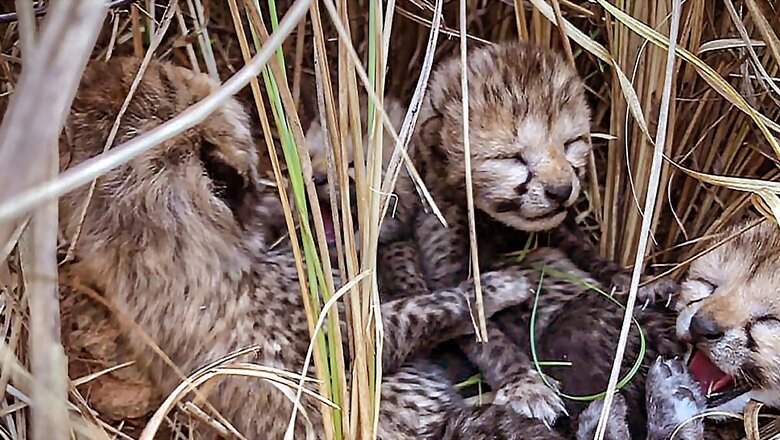
views
A high-level Indian delegation which was expected to visit South Africa this week to discuss translocation of the next batch of cheetahs has been deferred. This came just days after the lone free-ranging male cheetah, Pawan (Oban), was found dead near a stream in the Kuno National Park, taking the cheetah casualty to eight.
The delegation led by officials from the Ministry of Environment, Forests and Climate Change (MoEFCC), as well as National Tiger Conservation Authority (NTCA), was scheduled to depart on a four-day visit to the African country. The two countries had signed a Memorandum of Understanding (MoU) in January, 2023 for co-operation in cheetah re-introduction – India’s biggest wildlife experiment on the large carnivore.
“We have to bring around 8-12 cheetahs every year to ensure a viable meta-population is established in India. We re-introduced eight in Kuno in February, last year and the plan is to bring the next batch soon. It is a long-term project. Both South Africa and Kenya are under-consideration,” said Dr Gobind Sagar Bhardwaj, ADGF (Project Tiger) and Member Secretary, National Tiger Conservation Authority (NTCA).
The massive project launched in September 2022 has come under fire after successive feline deaths in the Kuno National Park, but remains on track to source more cheetahs. Out of the 20 adult cheetahs airlifted in transport crates from Namibia and South Africa over the last two years, eight of them have died. The remaining 12 were re-captured last year and put back into large fenced enclosures where the critically-endangered wild beasts are also being captive-bred.
The Indian delegation consisting of wildlife experts also planned to study South Africa’s captive-breeding program, and their further upkeep, and meet with the South Africa Department of Fisheries, Forestry and Environment (DFFE) to discuss the translocation. The visit is now likely to be rescheduled in the next few months.
Meanwhile, ground-level negotiations are also on with Kenya, News18 has learnt. The East-African country almost straddles the equator and was considered since it partly falls in the Northern Hemisphere as India – a consideration of some experts who suggested its cheetahs may be better-suited to adapt to Indian conditions, since the seasons are in sync. However, no country has yet been finalised.
NEXT BATCH TO BE BROUGHT TO GANDHI SAGAR SANCTUARY
At present, the plan is to re-introduce the next batch of cheetahs to Gandhi Sagar Wildlife Sanctuary in Madhya Pradesh where arrangements are being made for the cheetah reintroduction. The Madhya Pradesh Forest department has been augmenting the site with prey-population (cheetal, etc) to be adequate for the African cheetahs, and also fencing a part of the area.
The government’s Cheetah Action Plan proposes to translocate 12 cheetahs annually for the next 8-10 years to revive their population in the country – which may take up to 25 years. The African cheetahs being reintroduced are not the same Asiatic sub-species as the ones India had till about 70 years ago. So far, the wild beasts kept in Kuno have spent more time in captivity than in the wild. Just as the Forest department was bracing for the release of the cheetahs after go-ahead from the Cheetah Project Steering Committee, they found the lone free-ranging Namibian cheetah – Pawan (Oban) – dead near a stream.




















Comments
0 comment